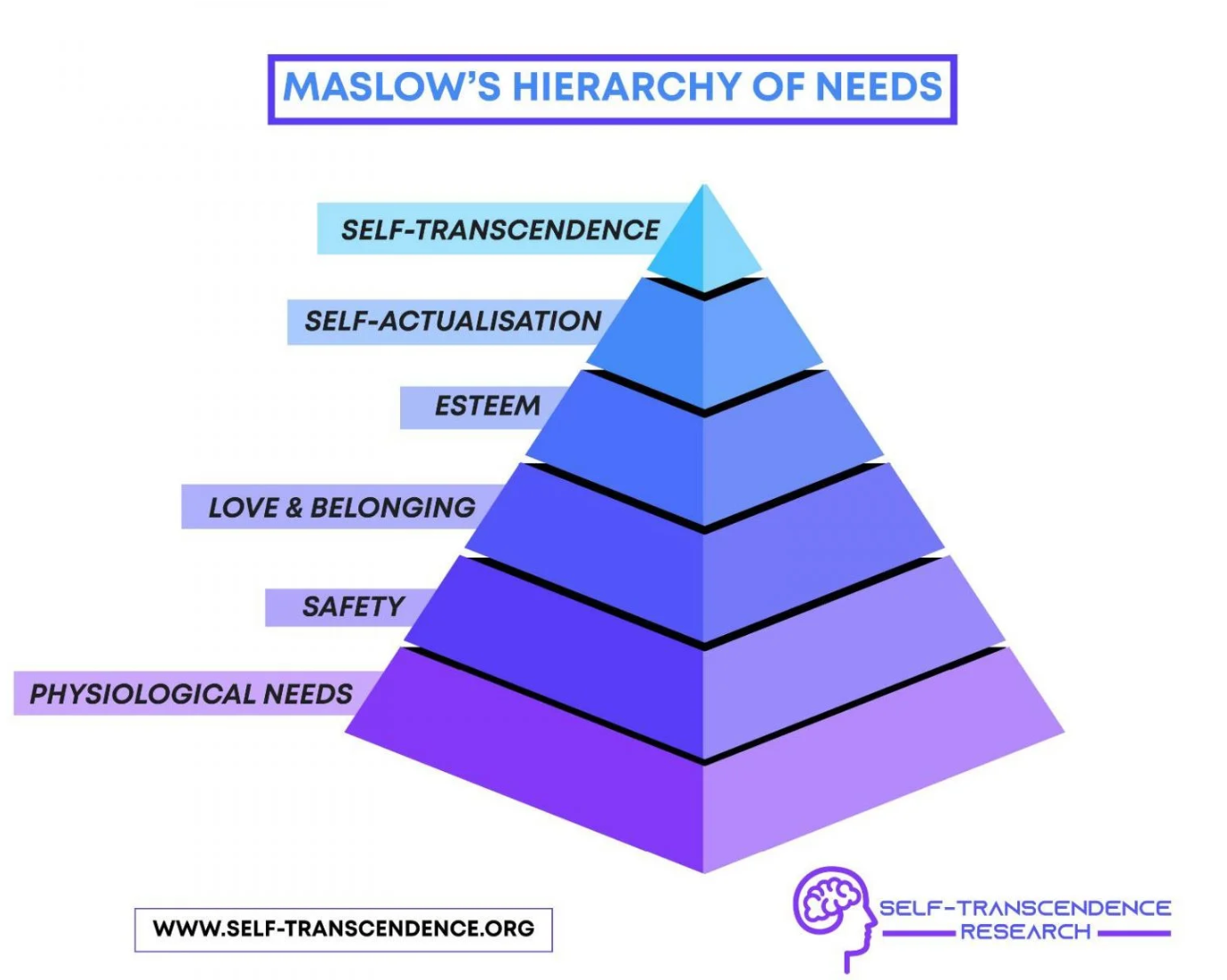Maslow's hierarchy of needs doesn't peak where you think it does.
There's another step.
Maslow’s first hierarchy stopped at self-actualisation, the point where a person realises their own potential.
But late in life, he decided that the real summit sits one step higher, which he called self-transcendence.
What self-transcendence means
- Going beyond the ego and feeling part of something larger than yourself – other people, nature, or the cosmos.
- Being motivated by “b-values”, such as truth, justice, beauty and unity, rather than by personal success.
- Experiencing frequent “peak experiences”, moments of awe and timelessness where self-concern drops away.
Self-actualization focused on you. Self-transcendence focuses on the part you play in the universe.
Your focus shifts from personal gain to serving something greater. Not trying to fill a void or fix what's missing. Not chasing achievements, but simply existing as part of the whole.
In other words:
There's more to you than you.
How to practice self-transcendence:
- Commit to a cause larger than yourself
- Train your attention through meditation or time in nature
- Ask “which choice serves truth rather than my image or comfort?”
- Seek awe (in art, music, or beauty)
- Note the shift from “me” to “we”
When you study billionaires, world champions, and global humanitarians, you realise they knew this all along.
Oprah talks about a career of connecting with spirit and serving how she believed the world was asking her to.
JP Morgan is known to have consulted an astrologer and is widely credited with the phrase, “Millionaires don’t use astrology, billionaires do.”
Nelson Mandela came out of 27 years in prison focused on reconciliation and nation‑building rather than personal vengeance.
No matter what you think of him, Elon Musk's ventures target humanity’s future and survival, seeking to advance collective progress beyond individual wealth.
Your career is more than a pursuit of wealth.
Life is more than a string of achievements.
There’s more to you than you.

Pyramid levels from bottom to top
Physiological needs: Basic survival needs such as air, food, water, warmth, and sleep.
Safety needs: Security of body, resources, employment, health, and property.
Love and belonging: Friendship, family, intimacy, and connection.
Esteem needs: Recognition, respect, self-confidence, and achievement.
Cognitive needs: The pursuit of knowledge and understanding.
Aesthetic needs: Longing for beauty, balance, and creative experiences.
Self-actualisation: Realising one’s full potential and experiencing peak experiences.
Self-transcendence: Going beyond personal needs to serve something greater, such as altruism, spiritual values, cosmic unity, or collective wellbeing.
Subscribe to my newsletter to get the latest updates and news



